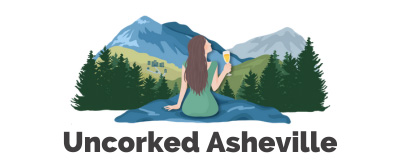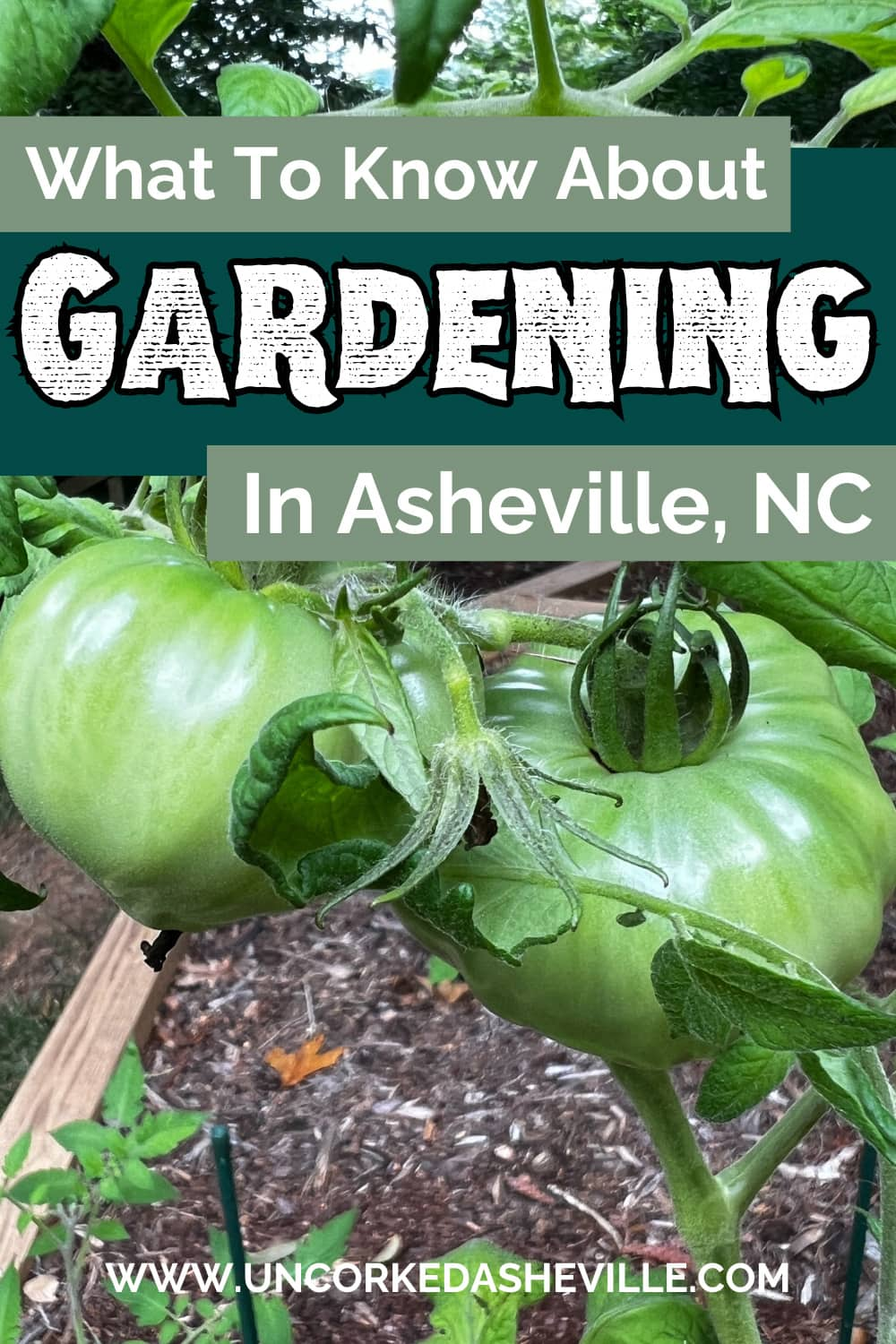Gardening in Asheville: Get Started With These Simple Tips
When we first moved to Western North Carolina, we had no idea where to start with our garden. Black bears, evil bunnies, and bugs swarm our little mountain oasis. It’s taken a lot of trial and error – and popped off flower tops and dead things. However, while tricky, gardening in Asheville just requires patience and practice.
See what and when to plant in Asheville, local nurseries we love, and special gardening events to attend. Our biggest tip: leave the basement door unlocked for when your resident teen black bear sneaks up on you. This guide is merely to get you started. Think Asheville gardening 101, starting in the spring. If you are a garden pro, this one is not for you.
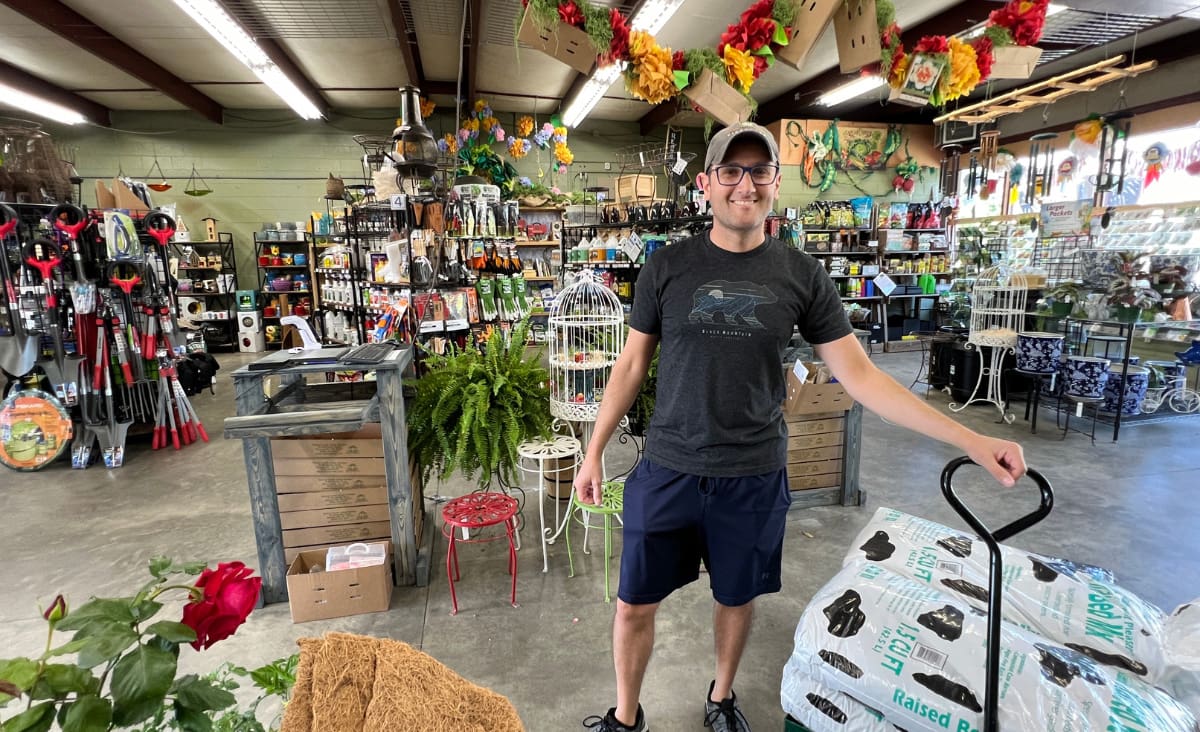
This post may contain affiliate links that earn us a commission at no extra cost to you. If you love these free guides, support Uncorked Asheville with a small tip.
All photos and experiences are our own from our home garden.
What You'll Find In This Guide
Quick Asheville Gardening Tips
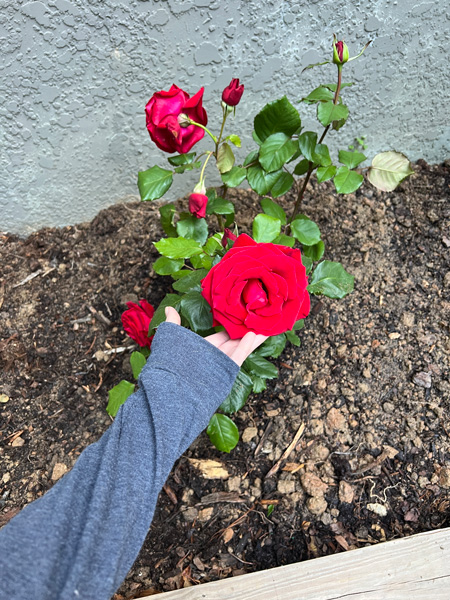
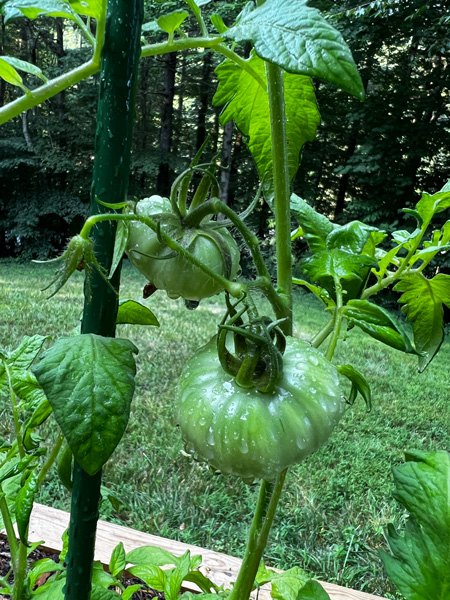
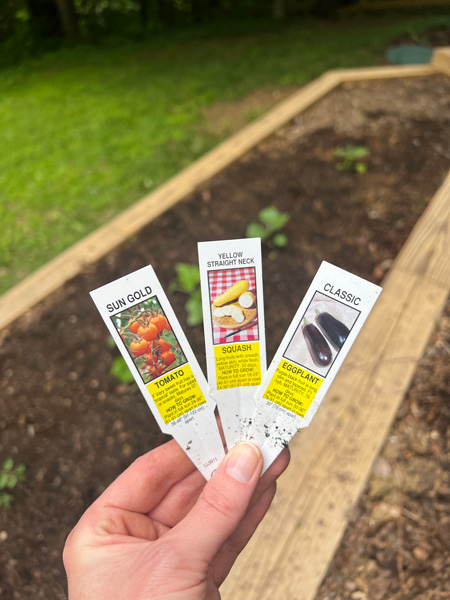
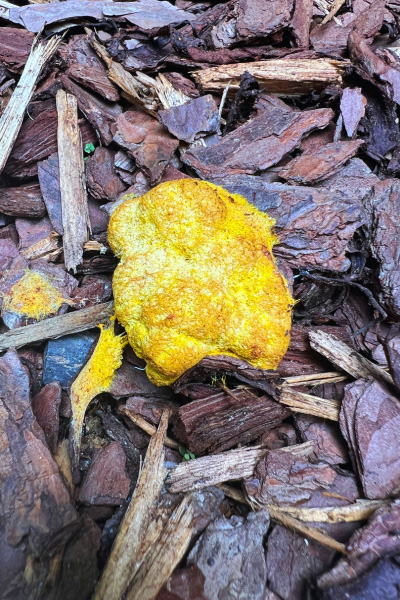
Have you ever arrived at a garden nursery, looked out over the plants, and suddenly realized you have no idea where to start? There’s no one around to help, and you find yourself frantically internet searching how, what, and when to plant in Asheville – but have no cell service because it’s the mountains. If you are just getting started, these are the top things to know about gardening in Asheville:
- North Carolina plant hardiness zones range from 5b to 8b. Asheville is Zone 7. Most local nurseries have plants clearly labeled for Zone 7. Other parts of Western North Carolina fall in Zones 5 and 6.
- It is easy to grow “dog vomit slime” (trust me, here); while not harmful but quite funky-looking, this brightly colored mold tends to like moist mulch and leaf debris. It easily washes away with the hose. Your plants are not destroyed.
- Bugs and critters are plentiful and will destroy herbs, flowers, and vegetables overnight. Depending on your gardening style and environmental values, consider ways to protect your plants. I moved my herbs to the top deck in a planter.
- Because of random frosts, hail, and unpredictable mountain weather, I start gardening in Asheville early to mid-May. April outdoor planting is risky business.
- Tomatoes are the easiest crop to grow followed by squash and eggplant (for me).
- It’s easy to over water as well as under water. Watch those bottom leaves.
- Asheville GreenWorks will teach you about native, pollinator-friendly practices, plants, and certification, if that’s your jam.
What To Grow In Asheville
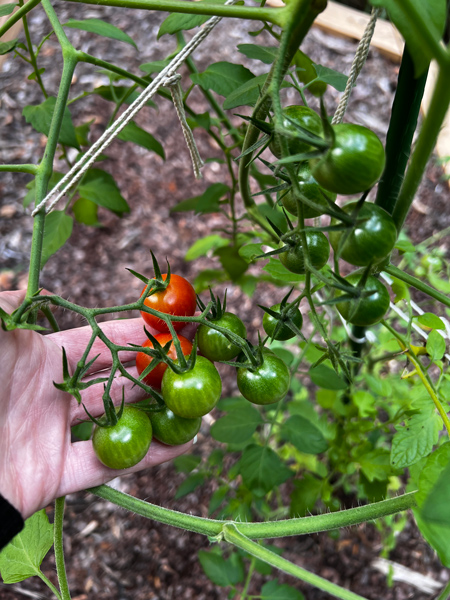
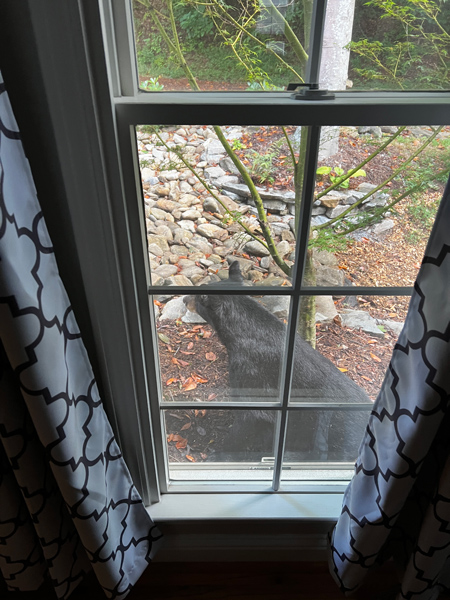
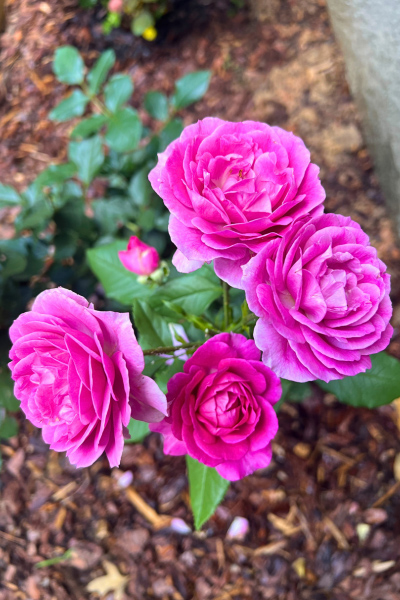
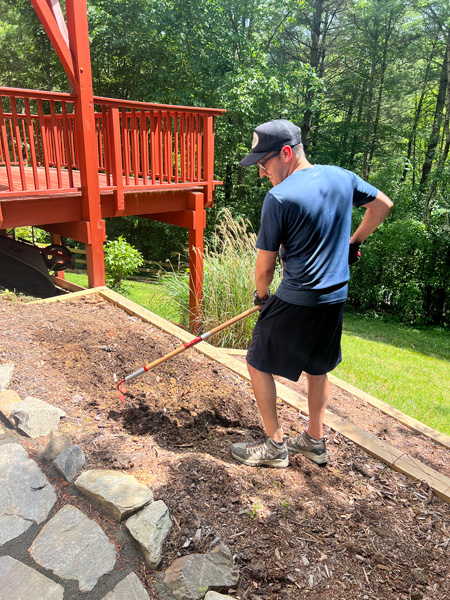
Let me preface this by saying that while we live minutes from Downtown, I feel like Snow White. Just replace the apple with wine. Our yard houses black bear families, bobcats, foxes, coyotes, raccoons, bunnies, snakes, and birds. We love it, but don’t let all that cuteness fool you; our garden is in constant jeopardy.
If you are a beginner area gardener, I suggest trial and error. Our first year gardening in Asheville, I managed beautiful beefsteak, cherry, and plum tomatoes. The bunnies devoured many of our flowers (I gave up; only fruits and veggies now), and we had to move all herbs off ground level; bugs and critters annihilated them. I couldn’t manage pumpkins from seeds, either.
These days, I’m going big with a variety of tomatoes, cucumbers, squash, eggplant, and pumpkins. We have beautiful rose bushes (that the bugs love). I bought Salvia deck planters for the hummingbirds. Our top-deck herb garden is filled with chives, fennel, cilantro, basil, and oregano. We’ve grown mint and dill, but you know how mint grows like a weed.
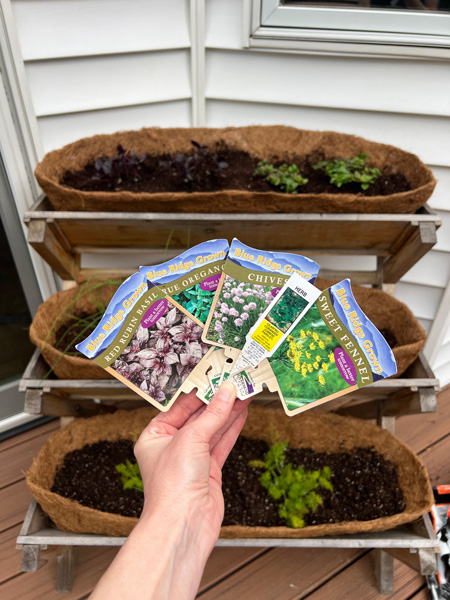
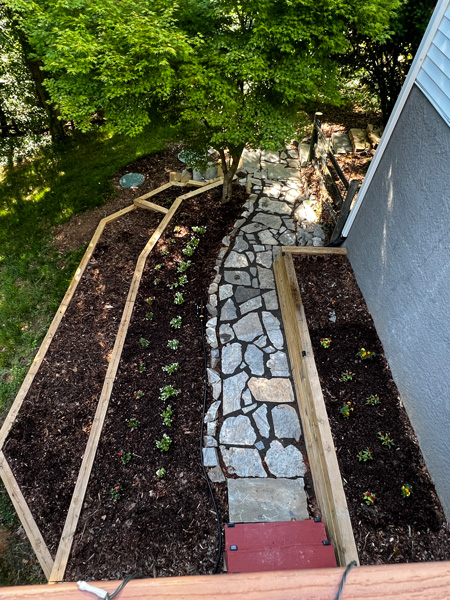
I love Daddy Pete’s Raised Bed Mix from Reems for topsoil. We also hired and highly recommend Totem Rocks and Landscaping, who redid what has now become our garden beds. They did all of our front yard landscaping, including plants, front door walkway, stone stairs to the backyard, and our garden walkway.
When To Start Outdoor Planting
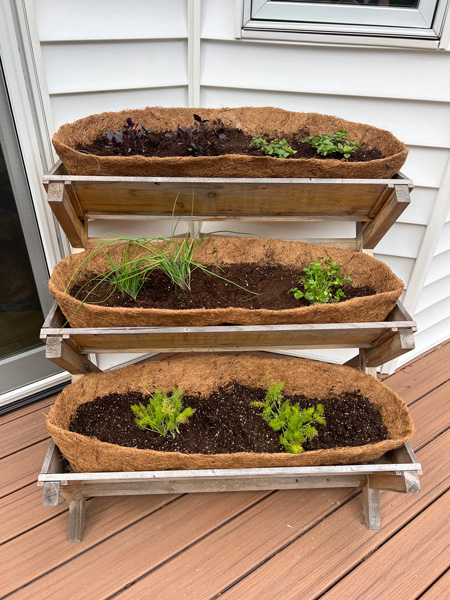
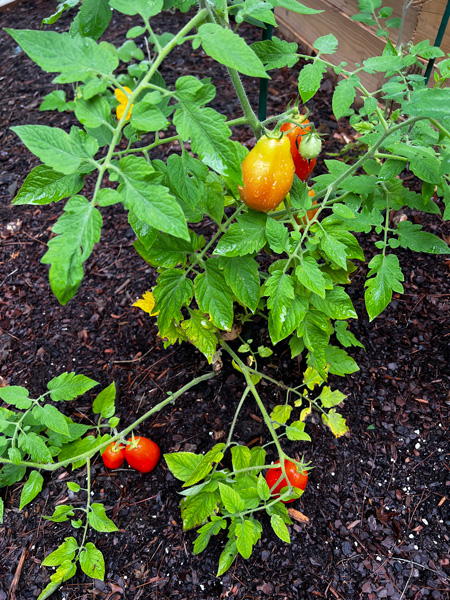
As mentioned above, I highly recommend starting all outdoor gardening in early May although others begin in late April. Our elevation is a bit higher than other parts of Asheville. Mother’s Day is a great reference. Please know I don’t start with indoor seeds; we are not high-tech over here. I’ve also never successfully grown anything outside starting with seeds.
A quick vegetable cheatsheet for what and when to plant in Asheville:
- Spring basics: tomatoes, lettuce, eggplant, herbs, peas, roses
- Late spring to summer: beans, squashes, pumpkins, cucumbers, gourds, sunflowers, peppers, carrots, beets
- Fall into early winter: lettuce, garlic, onion, broccoli, cauliflower, cabbage
NC State has a thorough Asheville planting calendar here. I typically trust what is being sold at the local nurseries and go with the flow. This is for fun and juicy tomatoes.
Where To Get Gardening Supplies, Plants, & Seeds
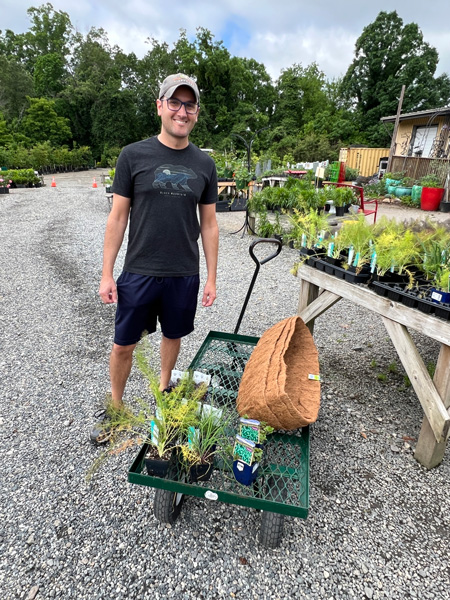
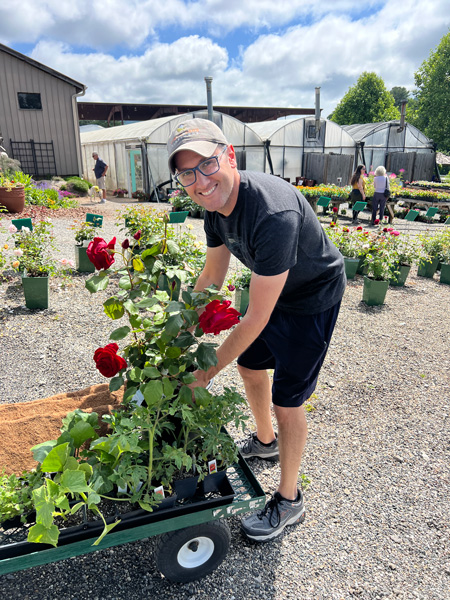
I won’t lie. When we first moved to Asheville, we bought a lot of basic gardening supplies at Lowe’s. Now, we have two favorite nurseries near Asheville, and we buy all of our gardening supplies from them:
- Reems Creek Nursery – Weaverville; 15-20 minutes by car
- Painters Greenhouse – Old Fort; 40 minutes by car
Both have everything you need, including terrific native plants, annuals and perennials, trees, shrubs, seeds, flowers, planters, topsoil, fertilizers, mulch, and garden supplies. We suggest walking around before grabbing a cart and familiarizing yourself with the lay of the land. Staff members are extremely helpful, and both grow wildly busy on peak growing weekends.
I’ve also gotten replacement herbs and tomatoes at EarthFare, which were some of the best we’ve had.
Make the nurseries and greenhouses an Asheville day trip excursion: We love Old Fort for mountain biking and lunch at Hillman Beer. Weaverville has Lake Louise, delicious restaurants, and hopping breweries. If you are headed back to Asheville from Weaverville, we love to-go sandwiches from the Montford Deli.
Western North Carolina Gardening Events
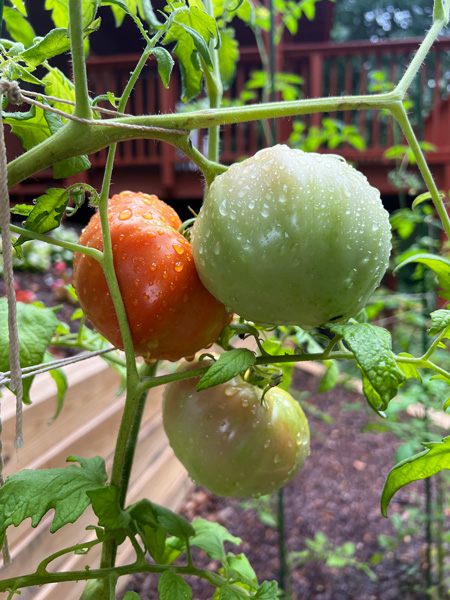
These are just a few popular gardening events near Asheville for supplies, plants, tips, and fun:
- Growing in the Mountains (mid-April)
- Asheville Herb Festival (end of April)
- Asheville Botanical Gardens Native Plant Sale (May & September)
- Hendersonville Garden Jubilee (Memorial Day Weekend)
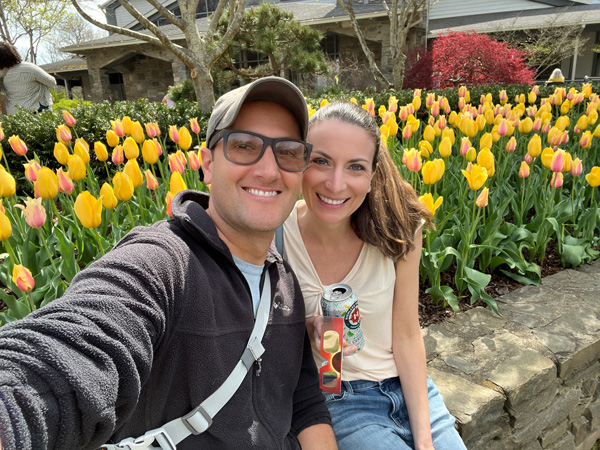
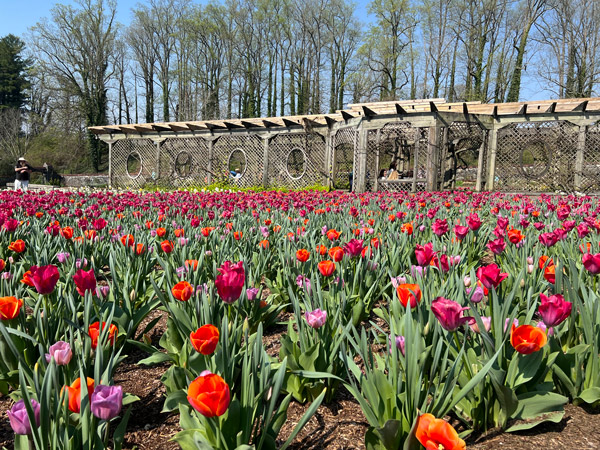
We also love the Biltmore Blooms and The NC Arboretum for inspiration. Be sure to check out our annual events calendar.
Cheap Online Gardening Tools I Love
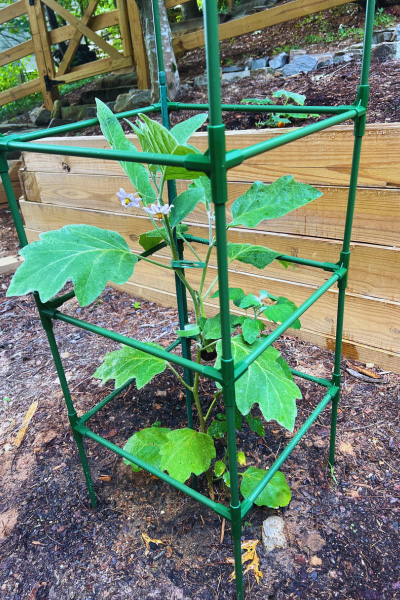
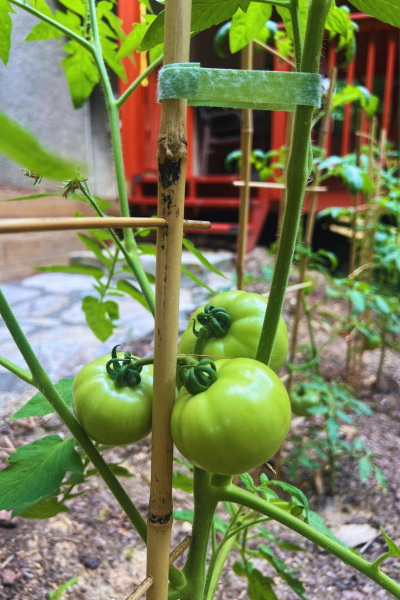
Every year, I find my Asheville garden getting bigger and bigger. I’m always ordering last minute tools and trying new things, especially to reign in those tomatoes. While we buy almost all of our supplies locally, a few garden products I can’t live without from Amazon include:
- Plant Cages: I love these easy-to-build cages for tomatoes and eggplants. They are just the right size and sturdy enough for my needs. We also use stakes and trellises bought locally.
- Reusable Velcro Garden Ties: These are a lifesaver! In previous years, I used string, but I’m loving how great these initially cut, stick, hold up my plants, and re-stick for many uses.
- Cucumber Trellis For Raised Beds: We modified the size of our cucumber trellis, which was a pain in the butt. However, this trellis saved my cucumbers, and they started growing like wild. It’s not the most fun to put together (so many parts!), but it’s worth it for the price.
Share Your Gardening Advice & Experiences
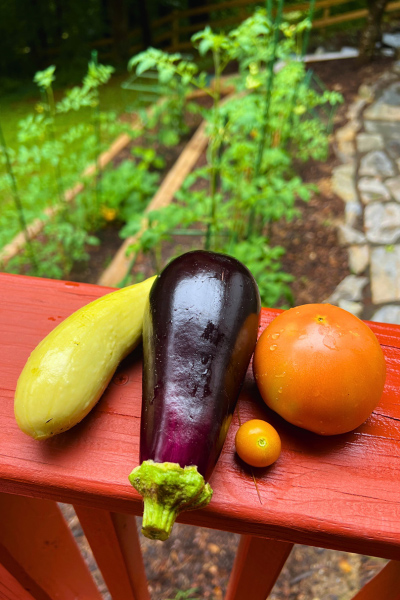
As amateur gardeners craving basic fruits, vegetables, and herbs, we hope our gardening guide gets you started. We are not professionals, clearly. I update articles every year, and Tom and I are always learning. We’d love to know your Western North Carolina gardening tips, favorite things to grow, and what we missed in the comments (or drop me an email, as always).
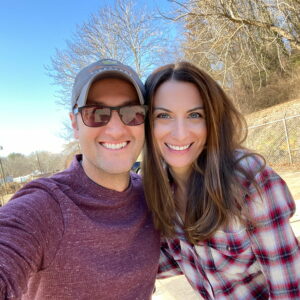
Christine Frascarelli
Christine (pronouns: she/her) is the owner and lead writer of Uncorked Asheville. After falling in love with those gorgeous Blue Ridge Mountains, Christine and her husband Tom decided to call Asheville, North Carolina home. When her pointy Italian nose isn’t stuck in a book, Christine is adopting all of the kitties, getting lost in the forest, and drinking an ESB. She has a BA in English and History from Smith College, her MLIS from USF-Tampa, and is a former U.S. Fulbright Scholar - Indonesia. Christine also owns The Uncorked Librarian LLC with books and movies to inspire travel.
